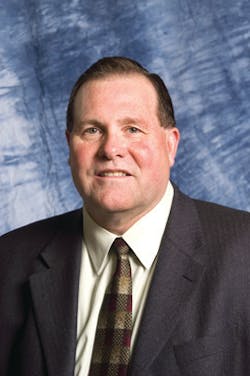Fire Politics: Investing in the Future
I’m very fortunate to have the opportunity to travel extensively throughout the country and visit with people from all over the fire and emergency services community. One of the concerns shared with me often revolves around the preparation of people who will lead our fire departments, as well as our local, state and national fire service organizations and associations in the future. They will end up being the same people who will regulate the effectiveness of the fire and emergency services in political endeavors.
There has been tremendous turnover of fire service leaders in recent years, and that will continue for the foreseeable future. One of the greatest responsibilities of current fire service leaders is to ensure a strong cadre of men and women to step into those positions and assume key leadership roles. This is true for our fire departments (career and volunteer), as well as all other fire service organizations and associations. The amount of emphasis placed on this critical area of need varies significantly within the fire and emergency services community.
There are many requirements for the development of people to assume these leadership roles and perform successfully. Following are just a few areas of development that can be critical to the future effectiveness of the fire and emergency services:
- Formal education – Current leaders are not doing the future generation of leaders any favors if we fail to support the importance of formal education. In many of the arenas within which they must be effective, their professionalism and qualifications to assume important positions of leadership will be judged to some extent on whether they possess college degrees. Associate’s, bachelor’s, master’s and, in some cases, doctoral degrees can be essential to preparing people to assume leadership and management roles in the fire and emergency services, just as they are in many other professions. No matter what type of degree is pursued, part of the curriculum must include courses in political science. It is a shame when some of our best and brightest leaders of tomorrow are actually discouraged from continuing their formal education. Some windows of opportunity may not be open to them simply because they lack a credential – a college degree.
- Training – Occupational technical training and professional certifications are important to success in the fire and emergency services, no matter what position a person holds. This includes those who desire to fill positions of leadership. Future and current leaders should be encouraged to strive to achieve high performance levels in order to maintain their personal competence. A person cannot compensate for incompetence, so it must be avoided at any expense. Being perceived to be incompetent will compromise a person’s ability to effectively lead and influence others.
- Experience – The measure of a person’s level of experience is not the number of days they show up. It is more a reflection of what the person has been exposed to over time and the lessons taken away from those exposures. Sometimes, seniority and experience have very little in common when it comes to the development of people. It is important that current leaders pass along their experiences to future leaders, but it’s just as important to let them perform in positions that allow them to gain from experiences of their own. People don’t just learn from listening and watching, they also learn by doing. As part of their development, current leaders should let future leaders “do it” while being coached along the way. This includes gaining experience operating at various levels of politics and working on issues that are sure to become politicized.
- Interpersonal skills – Leaders who excel tend to have a few things in common. One of those is their ability to select the right people, inspire them and create open lines of communications. This tends to create relationships built on mutual trust and mutual respect. Leaders who often struggle haven’t figured this out or simply don’t care. This set of skills is so important to success in the political arena. Leaders must be capable of developing positive relationships with people who occupy many different positions at various levels within an organization. This includes those who work in government offices at the local, state and national levels.
These four areas of leadership development certainly don’t cover the full range of requirements for future fire and emergency services leaders, but they are important in establishing a foundation to work from. They cover issues that are applicable to all fire and emergency services organizations and associations, but they are also critical to success in the many aspects of politics. It is very important to position oneself as a trusted advisor in the political process. This cannot occur if the leader is perceived as unprofessional, poorly trained, lacking experience or possessing poor interpersonal skills. These realities may be some of the most important information that can be shared with future fire and emergency services leaders as they develop into the leaders they want to become.
